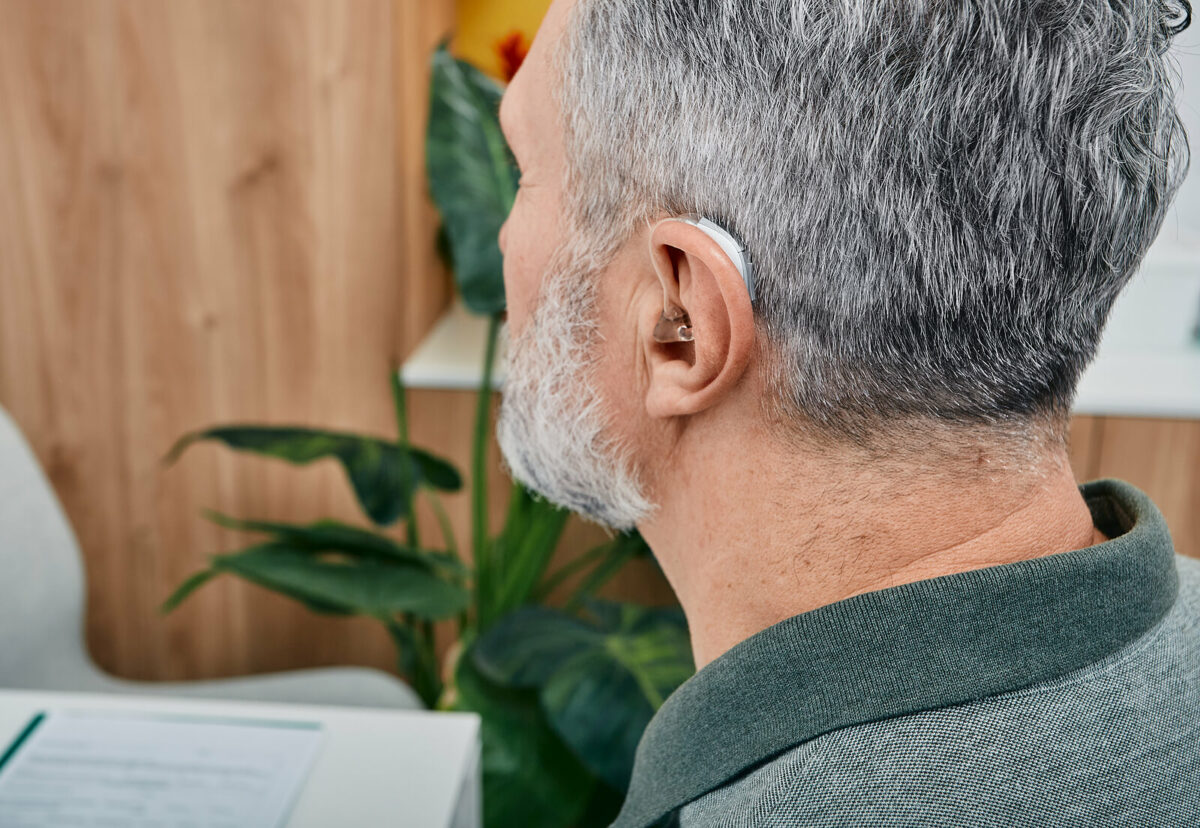As people enter their golden years, their bodies undergo an assortment of changes, some subtle and others more noticeable. Among these changes, hearing loss stands out as a common thread, affecting millions of seniors worldwide. While often viewed as an isolated issue, recent scientific inquiry has unveiled an intricate relationship between hearing loss and dementia. Dig into the silent connection between these two conditions and explore why prioritizing your hearing health could be the cornerstone in preserving cognitive vitality as you age.
The Prevalence of Hearing Loss is a Growing Concern Among Seniors
It’s no secret that hearing loss becomes increasingly prevalent as people experience the passage of time. According to the esteemed National Institute on Deafness and Other Communication Disorders (NIDCD), approximately one in three individuals in the United States aged between 65 and 74 grapple with some degree of hearing loss. Astonishingly, this figure burgeons to nearly half for those aged 75 and beyond.
Hearing loss is not merely a matter of struggling to hear sounds; it can impact social interactions, mental well-being, and overall quality of life. Despite its pervasive presence, hearing loss often languishes unrecognized and untreated, leading to many repercussions, including cognitive decline.
The Connection Between Hearing Loss and Dementia
In recent years, research has shed light on the large correlation between hearing loss and dementia in seniors. While the precise causes behind this association continue to be explored, researchers have come up with several compelling theories to explain the connection.
One prevailing theory suggests that untreated hearing loss forces the brain to work overtime to compensate, diverting precious cognitive resources away from essential functions such as memory and reasoning. After a while, this heightened cognitive load may catalyze the onset and progression of dementia.
Moreover, the dangerous cycle of social isolation, often intertwined with hearing loss, emerges as a potential risk factor for dementia. A lack of meaningful engagement and communication can lead to feelings of loneliness and despair, both of which have been indelibly linked to cognitive decline.
The Importance of Early Diagnosis and Treatment
Although the association between hearing loss and dementia can be hard to avoid, there still exists some hope. Early intervention in the form of hearing health exams and customized treatments can serve to guide individuals toward soothing the exhausting effects of hearing loss on cognitive function.
Regular hearing tests serve as indispensable tools for identifying and addressing hearing loss in its earliest stages. These comprehensive assessments, typically administered by hearing health professionals, encompass an array of tests designed to measure the extent of hearing impairment and help devise tailored intervention strategies, ranging from hearing aids to assistive devices.
By embracing a proactive approach to hearing health, individuals cannot only alleviate their hearing loss but also potentially diminish their susceptibility to cognitive decline and dementia.
Strategies for Maintaining Cognitive Strength
In tandem with seeking routine hearing exams, seniors are encouraged to adopt an arsenal of strategies aimed at strengthening cognitive health and overall well-being. These include developing healthy social connections, engaging in regular physical activity, maintaining a balanced diet full of brain-nourishing nutrients, and indulging in mentally stimulating activities such as reading, puzzles, and lifelong learning endeavors.
By integrating these personal practices into their daily routines, seniors can set forth on a path toward preserving cognitive function and enjoying a vibrant and happy existence in their golden years.
Embracing Hearing Health for Cognitive Well-being
In essence, the link between hearing loss and dementia emphasizes the importance of prioritizing routine examinations and proactive interventions in seniors. By choosing to confront hearing loss head-on, individuals cannot only enhance their quality of life but can also potentially be less vulnerable to cognitive decline and dementia.
By seizing control of their hearing health and overall well-being through seeking out knowledge and maintaining awareness, seniors can fuel their journey to hearing wellness. In doing so, they create a world where seniors can age gracefully, with their cognitive vitality intact for generations to come.
Learn how early intervention and proactive strategies can empower seniors to preserve their hearing health and enjoy a fulfilling lifestyle in their golden years. Unlock the secrets to maintaining cognitive vitality through the nurturing of auditory wellness. Contact us today!

